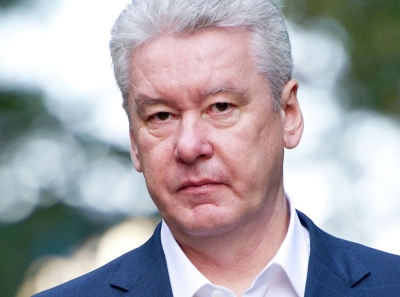Agrifood Brief: Avengers of convergence

The EU’s financial aid provided to the ‘frontline’ countries neighbouring Ukraine has been controversial, with the €100 million support package funded with Common Agricultural Policy (CAP) money to Bulgaria, Hungary, Poland, Romania, and Slovakia extensively criticised by all sides.
Some said it was a way to reward the use of blackmail by some member states for having most likely breached both EU and international law.
Others complained about the lack of transparency of the procedure, as the support package was agreed upon at the political level by the Commission and the interested countries, without consulting other member states.
Others even accused the Polish Commissioner Janusz Wojciechowski of playing favourites and facilitating the delivery of a great deal of money to his own home country.
But a notable point is also that triggering the agricultural reserve led to a resurgence of the East-West divide – something that in EU agricultural policy is inseparable from the idea of convergence.
In this way, the package could be seen as a way in which Eastern European farmers took their revenge for the never-delivered external convergence process.
Despite not being as popular as other concepts such as ‘direct payments’ or ‘eco-schemes’, convergence is still a must-to-know word in the CAP jargon.
There’s an internal convergence, which is designed to even out all payments between farmers within the same member states.
Internal convergence is, in essence, about ensuring that all farms, regardless of size or historical entitlements, receive the same basic payment entitlements per hectare.
Then there is external convergence, which seeks to align all payments between member states.
Not many know that, indeed, not all farmers in Europe get the same amount of CAP funding – or, as some Baltic MEPs put it once, there are ‘equal’ and ‘more equal’ farmers within the EU.
The most famous line of George Orwell’s timeless classic ‘Animal Farm’ was used to make the point that a fair distribution of direct payments in the CAP across Europe is still in the making.
A precondition to the Eastern enlargement in 2004 and in 2007 was not to give newcomers the same slice of the CAP cake that ‘old’ farmers used to get before.
That meant, in practice, that the income support received by the Eastern farmers is below the EU average level, which created de facto artificial disparities among the CAP beneficiaries on the basis of the country they live in.
At the time of the Eastern enlargement, it was agreed in principle that this gap should have been closed in a decade.
However, after almost 20 years, we are still far from levelling direct payments across all European countries.
The concept of external convergence was introduced by the 2013 CAP reform, which aimed to reduce these differences in the average support per hectare after Eastern enlargement.
This process is designed to gradually allow equal direct payments for all the member states.
But this equality will not be reached even at the end of the current CAP programme in 2028, as lawmakers agreed in the CAP negotiations that countries receiving direct payments below 90% of the EU average per hectare will only see an increase of their budget up to half of the difference to 90%.
This will help bring the average level of payments closer together, but still not on par.
In this sense, the political win of the infamous €100 million package sounds a bit like the revenge of the Eastern countries over the ‘old’ Western member states.
It is also a sign that newcomers now know how to play their cards in the EU agricultural policy game and that they eventually attempt to scrap the CAP disparity for good in the next budget negotiations.
Controversies over external convergence are not looking to disappear any time soon.
With Ukraine’s accession just around the corner, the issue of how to integrate such a global agricultural powerhouse into the EU’s farming subsidies programme without going bankrupt will be raised.
One solution could be to replicate this unfair but useful tool of external convergence, hoping that the catch-up with the rest of Europe could come a bit earlier.
Agrifood Podcast: Parliament battles over votes & CAP environmental exemptions

Agrifood Podcast: Parliament battles over votes & CAP environmental exemptions
This week, EURACTIV’s agrifood team walks you through two key votes in the European Parliament on the nature restoration law and EU rules to slash industrial emissions.
Agrifood news this week
Insect spaghetti? EU agency greenlights another insect-based foodstuff. A powder made of yellow mealworms could be the next insect-based foodstuff to hit EU supermarket shelves after winning the approval of the European Food Safety Authority (EFSA), which concluded it raised no safety concerns. Natasha Foote has more.
Commissioner wants to extend selective EU ban on Ukraine’s agri commodities. The temporary trade restrictions on four agricultural products from Ukraine to five European ‘frontline’ countries need to be prolonged at least to October, according to the EU Agriculture Commissioner Janusz Wojciechowski. Read the full story.
Brussels closes German nitrate pollution case after decade-long tussle. Germany is now in compliance with EU nitrate pollution rules and equipped to further tackle high pollution levels in groundwater, the European Commission announced on Thursday, ending a decade-long back-and-forth with Brussels and the threat of hefty fines. Read more.
Parliament: EU’s food traditions should remain in Commission’s control
The control of the EU’s food traditions should remain firmly in the hands of the EU executive, according to the European Parliament, which adopted its position on overhauling the EU’s food quality scheme on Thursday (1 June). Read the story here.
Leading MEP wants to quiz pesticide firms on withheld toxicity studies
Head of the European Parliament Committee on Environment, Public Health and Food Safety (ENVI), Pascal Canfin, wants a hearing with agrochemical giants Bayer and Syngenta after researchers accused them of withholding information on the brain toxicity risk of pesticides. Julia Dahm has more.
Commission promises third aid package to EU farmers to cool down criticism. The EU executive is planning to put forward a new support package by June for farmers “affected by different types of crises” as a response to criticism received for the previous allocation of EU agricultural funds to Eastern European countries. Find out more.
Tensions mount as rival protests clash over EU nature restoration law. Farmers and green groups both turned out in force outside the European Parliament on Thursday (1 June) because of the EU’s proposed nature restoration law as tensions continued to mount over the future shape of the EU’s green ambitions. Read more.
EU strikes provisional deal on new fishing control rules. EU lawmakers have reached an agreement on the most significant overhaul of the bloc’s fisheries monitoring rules in a decade, marked by the contentious relaxation of rules on misreported fish catches. Paula Andrés has the details.
Agri-bites
‘Frozen’ conflict. Croatia has urged the EU to adopt binding bloc-wide rules on the maximum shelf life of frozen products, especially frozen meat. “In this way, the position and competitiveness of European agricultural consumers would be strengthened, as the placing on the market of products that have been frozen for a long time in European stores would be reduced,” the Croatian delegation wrote in a note submitted to this week’s agriculture ministers’ meeting. It adds that, currently, legal doubts exist as to the deadline after which products have to be withdrawn from the market.
Dismay over soil law delay. Twenty-seven European and national environmental and farming associations have criticised the delay of the proposal for a soil health law in a letter sent to a range of Commissioners. Originally, the EU executive had been set to table the law this week, but the presentation was pushed back to the beginning of July. “With the 2024 European elections approaching, it is critical that the EC [European Commission] proposal be published as soon as possible,” the organisations stress.
Research to stand with farmers. In the face of challenges like the Russian attack on Ukraine and extreme weather events like drought, research is needed to support farmers, EU agriculture Commissioner Wojciechowski said at this week’s EU AgriResearch Conference. “We need to lend our support, to help them become more productive, competitive, resilient and sustainable,” he stressed, while highlighting the “substantive” investments the EU is making into agriculture-related research.
“Deficiencies” in carbon farming proposal. The Commission’s proposal for a certification framework for carbon removals, including in agriculture, still has “significant deficiencies” in the view of eleven German NGOs who published a joint position paper on the matter this week. In its current form, the proposal “poses a risk” of “undermining progress in Europe on climate and environmental protection”, as carbon offsets might mean there is less willingness to cut emissions in the first place, the paper warns.
Binding rules to protect migrant workers. The European Federation of Food Agriculture and Tourism Trade Union’s conference on ‘Mobile and Migrant Workers’ reiterated the call for a new inclusive EU vision on labour mobility and migration and calls for an EU binding initiative on labour intermediaries and fair working conditions across subcontracting chains. “I am doing the same job in the same workplace as direct employees, but the level of protection is incomparable. Collective bargaining dumping is commonplace in my sector where subcontracting is normalising exploitation,” said Cristopher Warnakulasuriya, a Sri-Lankan migrant worker in the meat sector in Italy.
Recycling and food safety. During Monday’s meeting, the EU agricultural ministers also discussed the Commission’s proposal for the Packaging and Packaging Waste Regulation. While environment rather than agriculture ministers are primarily in charge of the file, food policymakers, as well as the industry, have warned the law needs to take account of the specificities of food packaging, including with a view to food safety. “Today we called for a balanced […] that tackles the problem effectively while also maintaining food safety,” Swedish minister Peter Kullgren said after the meeting.
Agrifood news from the CAPitals
ITALY
NGT-sì: Italy to launch tests on gene editing for plants. Italy’s Parliament brought forward the possibility of carrying out tests for applying new genomic techniques (NGTs) on plants until the end of 2024, pending the EU’s much-awaited new regulation on the matter due in July. The time-limited derogation was approved in an amendment to the recent decree to cope with drought and provides that research activities can be conducted in ‘authorised field trials, which is currently subject to the authorisation process envisaged for GMOs. (Gerardo Fortuna | EURACTIV.it)
SLOVAKIA
More than one in three Slovaks believe in EU insect conspiracy. More than one in three Slovaks believe Brussels is endangering public health by ordering insect protein be added to food without consumers knowing, despite the European Commission’s attempts to debunk the hoax, a new study has found. Read more. (Barbara Zmušková I EURACTIV.sk)
AUSTRIA
Spring weather deals blow to beekeepers. Austrian beekeepers have warned that the amount of blossom honey produced in the country this year will be unusually low due to unfavourable weather conditions this spring. In the face of frequent rain, bees could not fly out to find fruit and rape blossoms and instead had to be artificially fed, according to the Austrian beekeeper umbrella association. For many beekeepers, the association predicts 80% lower yields. (Julia Dahm I EURACTIV.de)
FRANCE
Diets less and less organic. The share of organic products in food continues to fall in France and is down to 6% in 2022, far behind some EU countries, according to updated figures presented on Thursday by Agence BIO. The organisation sees rising food prices as the reason behind consumers’ dwindling enthusiasm. EURACTIV France has the story. (Hugo Struna I EURACTIV.fr)
GERMANY
€10 million fisheries aid. The German agriculture ministry has earmarked up to €10 million in aid for fishing companies in the country, set to soften the impact of Russia’s war on Ukraine. An aid programme that was originally established last year is thus prolonged. According to the ministry, production costs in the fisheries sector have been significantly higher since the start of the Ukraine war due to high prices for energy, materials and maintenance. (Julia Dahm I EURACTIV.de)
IRELAND
Irish campaigners support EU Nature Restoration Law, Taoiseach not convinced. Environmental groups called on political leaders to support the highly criticised EU Nature Restoration Law and reverse the trend of deteriorating ecosystems during a rally outside the Irish parliament on Wednesday. Find out more. (Kira Taylor I EURACTIV.com)
SPAIN
Early elections call leaves unresolved agri-food legislative initiatives. The draft law for the prevention of food waste, which was pending review in the Senate, was one of the regulations that stopped when the Spanish Parliament was dissolved this Wednesday, after the early call for general elections on July 23. According to EFEAgro, the law was expected to be approved in June. Other agriculture-related laws that fell include the improvement of working conditions and social protection of agricultural workers and eventual agricultural workers in Andalusia and Extremadura; and one on measures to guarantee access to broadband Internet at 100 Mbps in rural areas. EFEAgro has more.
Events
5 June I ENVI committee meeting
7 June I Landcare Europe Conference
7 June I Eurogroup for Animals Annual Conference
7 June I Food Fermentation Europe Summer Reception
Read more with EURACTIV




